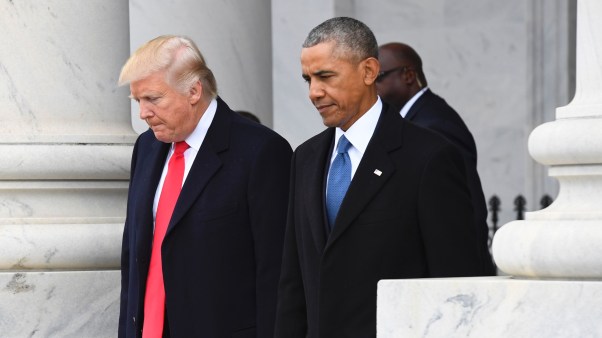If I’m being totally honest, I probably would not have written a book were it not for two friends, Dan and Stanford. After church one Sunday, Dan listened as I muddled through some thoughts for an upcoming retreat I was co-teaching with Stanford. “That would make a great book topic,” he said. I dismissed his encouragement with a laugh. But months later, when asked by a publisher if I had any book ideas, his words came back to me.
Dan is one of a number of men over the years who have been friends, allies, and encouragers to me. I’m not alone in this experience. Emily Hunter McGowan, a lecturer at Wheaton College, recently tweeted her acknowledgment to two men who played pivotal roles in her life by naming gifts they saw in her and encouraging her to develop them. Like me, many other women chimed in with similar stories of significant men in their lives. And, like me, many of these women are married.
The idea that married women should have relationships with men they’re not married to raises alarm bells for many, and with good cause. Sexual indiscretions regularly make headlines. Pastors and other leaders now have to contend with the threat of polyamory. And a devastating number of marriages are shaken and shattered by affairs. Naturally enough, we feel an urgent inclination to batten down the marital hatches and protect husband-wife relationships.
In church circles especially, men and women have practiced social distancing of a sort for many years. We lean on the oft-debated “Billy Graham Rule.” We give awkward side hugs. And more often than not, we outright avoid each other. My marriage of 16 years is precious, so wouldn’t it be better to cut off all relationships with other men? After all, Paul advises us to “[make] no provision for the flesh” (Rom. 13:14, ESV) and “stay away from every kind of evil” (1 Thess. 5:22).
However, I am increasingly persuaded that Paul’s words about the rules on food and Sabbath also apply to man-made (or woman-made!) rules about married people avoiding the opposite gender: “Such regulations indeed have an appearance of wisdom … but they lack any value in restraining sensual indulgence” (Col. 2:23). Colossians is clear that if we are to put our sinful natures to death, we don’t need more caution tape so much as more Christlikeness. Sexual infidelity ultimately results from a lack of character, not a lack of constraints. After all, the safest dog in the neighborhood is not the one on the shortest leash but the one with the most discipline.
“Between legalism and license lies the messier space of wisdom and cultivation of virtue,” writes Tish Harrison Warren in “It’s Not Billy Graham Rule or Bust.” “It is in that space where we—as individuals and in relationships—flourish. People need meaningful relationships with members of the opposite sex, and they need them to be safe, honoring, and full of integrity.”
What’s more, to suggest married people should cut off relationships with the opposite sex fundamentally misunderstands the nature of Christian relationships. On our wedding day, I promised myself to my husband alone, “forsaking all others” in the language of our vows. However, that forsaking applied only to the taking of other husbands and sexual partners. It did not mean forsaking relationships with any and all men.
As a disciple of Christ, I am called to love, serve, help, encourage, and partner with other Christians—not just the “unforsaken” half of the population in the women’s ministry but also the male half. And even though my husband promised himself to me alone—forsaking all other spouses and sexual partners—he is still called for Jesus’ sake to love, serve, help, encourage, and partner with both men and women.
The New Testament makes this calling clear. Men and women who are adopted by God the Father become brothers and sisters to one another in the family of God. The Epistles emphasize this conviction in their consistent address of believers as adelphoi: brothers and sisters in the family of God. (See for example, 1 Thessalonians 1:4, 2:1, and 2:9 as three of 15 references in that letter alone.)
This language is not just metaphorical, as in verses where believers are described as branches to Jesus’ vine or living stones in the temple. The familial language of the gospel is ontological. It describes a new reality of our being. “See what great love the Father has lavished on us, that we should be called children of God! And that is what we are!” enthused the Apostle John (1 John 3:1, emphasis added).
What this means, then, is that as a daughter of God, I’m called to see the men around me at church not as risks I ward off but as relatives I welcome. My goal is not so much to be friendly but to be familial, and this remains true regardless of my marital status. For in the body of Christ, do we not all need one another? If the eye cannot say to the hand, “I don’t need you,” (1 Cor. 12:21), then how can being married mean that I say to half the members of Christ’s body, “I don’t need you?” I cannot. I need my sisters and my brothers in Christ, and they need me.
Cultivating healthy relationships between men and women within the family of God is something God calls us to as his beloved children. Of course, this requires wisdom, character, self-control, and the accountability of community. We are fallen and fallible and should not be glib about these or any other temptations. Yet God has called us to live as the family he has made us to be, which means that as a married woman, I must consider how to cultivate healthy, holy, and wholly appropriate community with the brothers God has given me.
Especially in our current crisis, as we rethink how to do church and how to serve our communities, we need each other more than ever. We cannot isolate along gender lines.
Someday soon, when this pandemic is over, I will worship with Dan and Stanford, my brothers in Christ. I will worship and serve alongside other men, too, some as acquaintances but others as true friends. All of us in the global church will get to worship and serve together again. And when we do, it will be wonderfully familiar and familial.
Bronwyn Lea is the author of Beyond Awkward Side Hugs: Living as Christian Brothers and Sisters in a Sex-Crazed World (Thomas Nelson, April 2020). She lives with her family in Northern California and serves on the pastoral staff of her local church. Find her on Facebook, Instagram, and Twitter.











